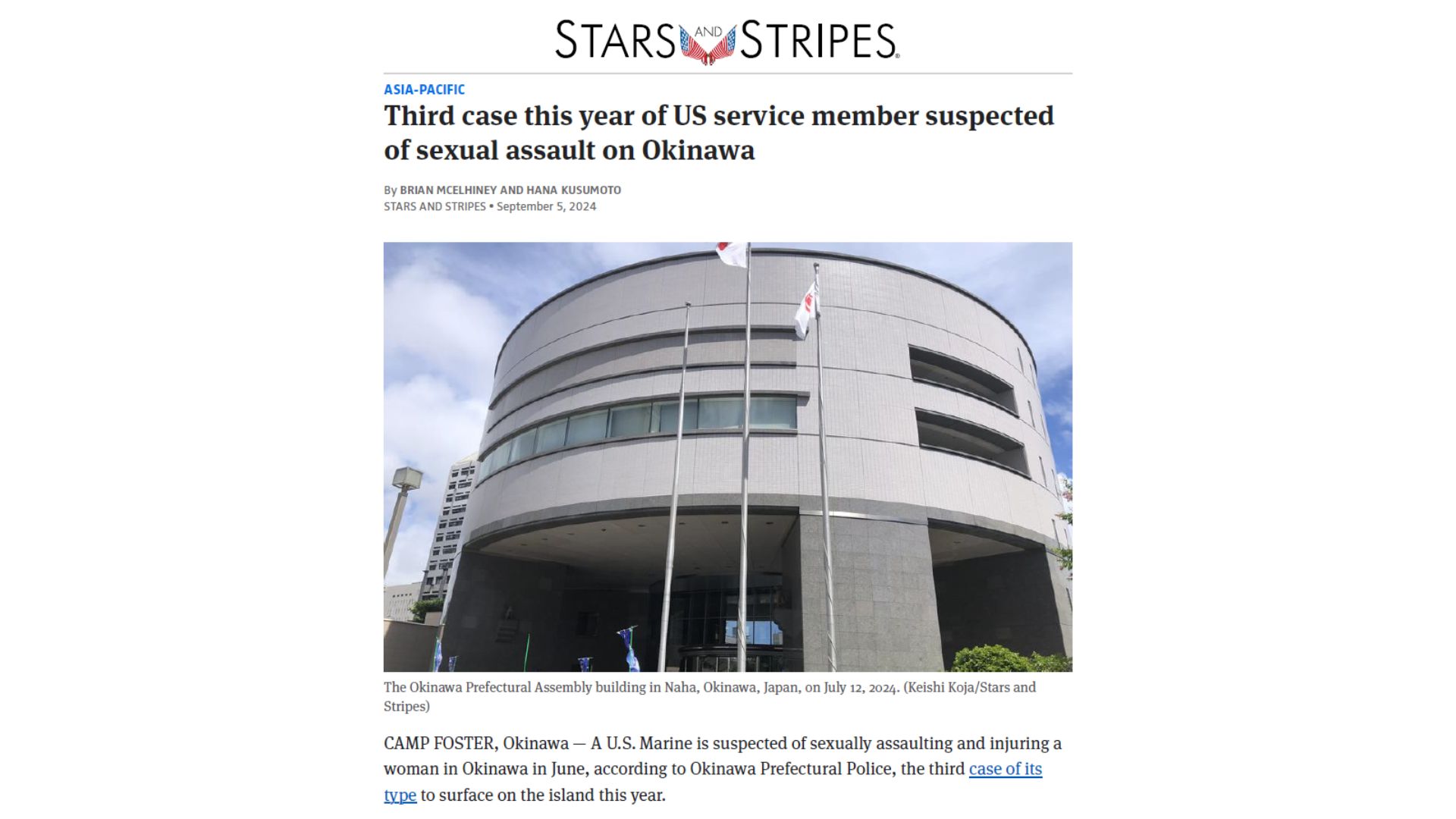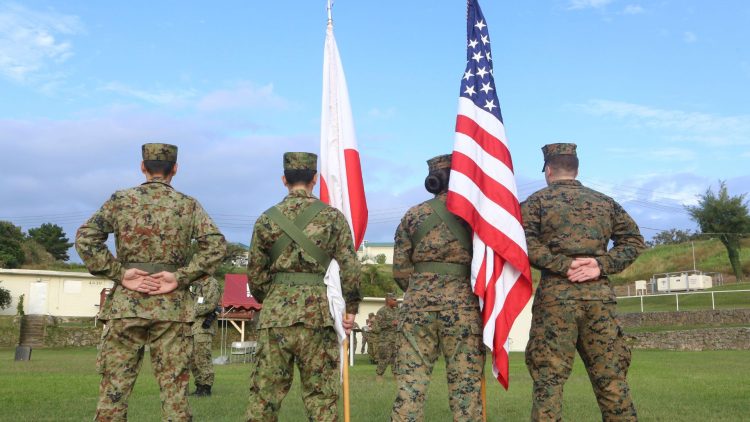Okinawa has long been a flashpoint for tensions between the US military and local residents, largely due to the sheer number of American troops stationed there and some past incidents involving military personnel.
The recent allegations of sexual assaults have only heightened these tensions, prompting the military to act.
The new restrictions on alcohol consumption are part of a broader effort to address these tensions and prevent further incidents that could sour the relationship between the two allies.
Kazuyuki Nakazato, the director of Okinawa Prefecture’s office in Washington, DC, expressed hope that the new policy will bring about positive change, noting the need to protect the safety and well-being of local citizens.
“I hope that this implementation of this system will let people understand why we need this under the circumstances,” Nakazato said. “We sincerely hope that it will work, but we have to see how it turns out.”
— quoted by Military.com
While the restrictions may seem like a minor inconvenience to some service members, they are part of a larger push to remind troops that their actions have consequences not just for themselves but for the entire US military and its standing in Japan.
As the liberty order itself states, “Acts of indiscipline or misbehavior by US military personnel adversely impact international relations, tarnish the image of the United States military, and affect our military readiness.”
Curbing Chaos or Just a Quick Fix?
This isn’t the first time the military has cracked down on alcohol consumption in Japan, and it likely won’t be the last.
Over the years, there have been similar incidents of misconduct that led to restrictions on drinking or liberty.
But what sets this new order apart is its emphasis on sexual assault prevention and accountability.
Commanders are now required to ensure that service members have completed sexual assault prevention training before being granted liberty. This is part of a growing trend within the military to address the issue of sexual misconduct head-on and to create a culture of accountability.
The directive aims to prevent late-night misconduct and reminds service members that the military takes these issues seriously and expects them to do the same.

But will it work? Well, it’s too soon yet to say whether these new restrictions will lead to fewer incidents of misconduct or ease the tensions between the American service members and the people of Okinawa.
However, the hope is that by limiting off-base drinking during late hours—when most incidents tend to occur—service members will be more focused on their duties and better able to represent the US in a positive light.
The military is also beefing up sobriety checks, including 100 percent breathalyzer tests for drivers and pedestrians after 8 PM and before 8 AM.
This step signals a commitment to ensuring that service members follow the rules and stay out of trouble.
Striking a Fine Line: Discipline Meets Diplomacy
As you already know, the US military is crucial in maintaining stability in the Indo-Pacific region, and Japan is a key ally in that mission.
However, maintaining good relations with the local population is just as important as military readiness.
That’s why actions like these—while perhaps seen as overly cautious by some—are necessary to prevent incidents that could erode trust and cooperation between the two nations.
Okinawa Governor Denny Tamaki has been vocal about the need to protect the people of Okinawa from what he called “heinous crimes” involving US troops.
During a visit to Washington, DC, in September, he made it clear that the relationship between Okinawa and the US military is strained by these incidents, and it’s the responsibility of both sides to ensure the safety of the local population.
Moving Forward
The new restrictions on alcohol consumption in Japan may seem like a small step, but they represent a broader effort to ensure that US service members conduct themselves responsibly and respectfully while stationed abroad. The military hopes to prevent further incidents that could harm US-Japan relations by cracking down on late-night drinking and emphasizing accountability.
While the effectiveness of these measures remains to be seen, the military is clearly committed to addressing these issues head-on.
For service members stationed in Japan, this means recognizing that their actions have consequences—not just for themselves but for the broader relationship between the US and one of its closest allies.
The bottom line? In today’s tense geopolitical climate, the US military knows that maintaining discipline and fostering good relations with host nations like Japan is just as important as its ability to project military power.
—
Disclaimer: SOFREP utilizes AI for image generation and article research. Occasionally, it’s like handing a chimpanzee the keys to your liquor cabinet. It’s not always perfect and if a mistake is made, we own up to it full stop. In a world where information comes at us in tidal waves, it is an important tool that helps us sift through the brass for live rounds.










COMMENTS